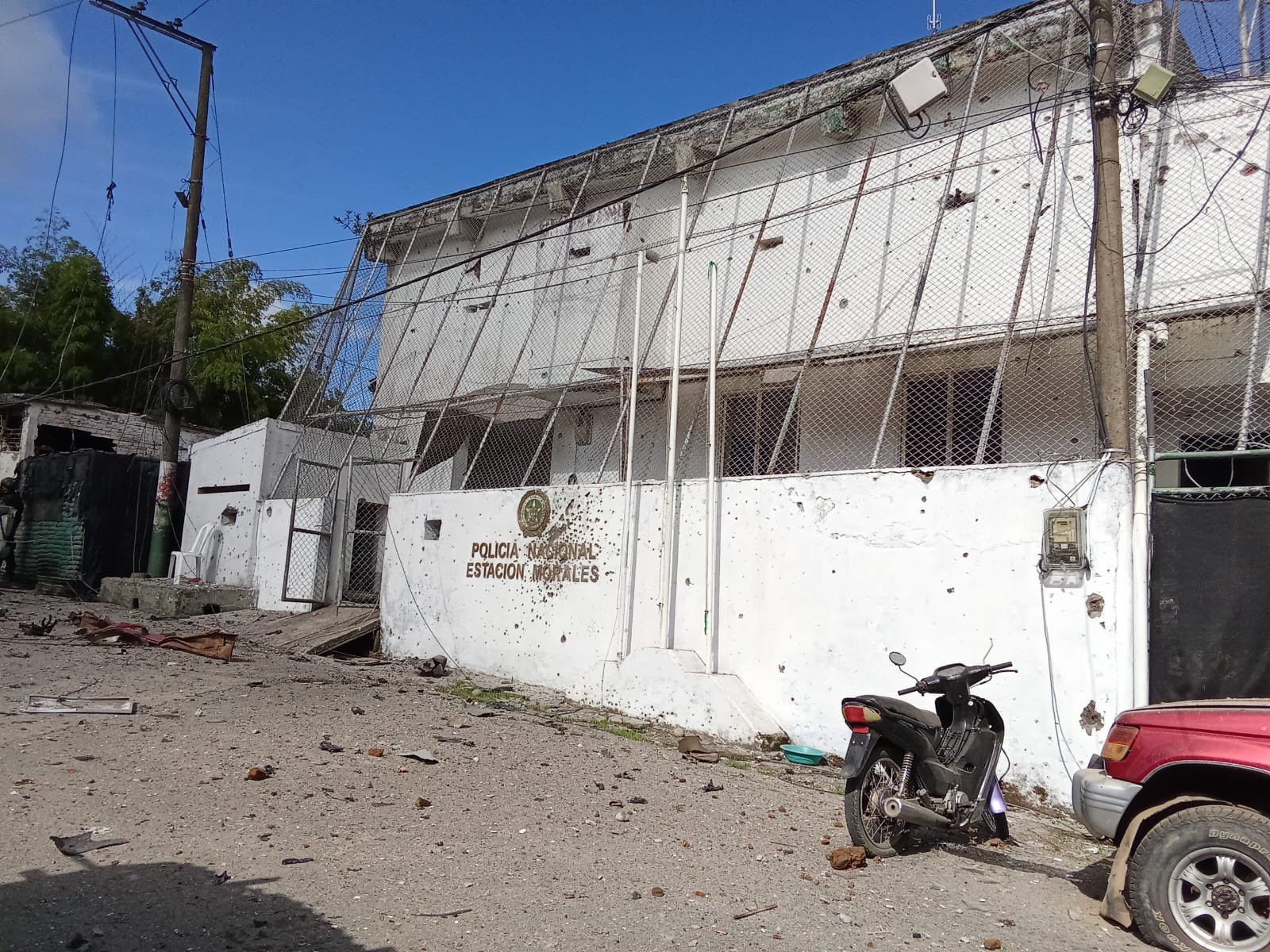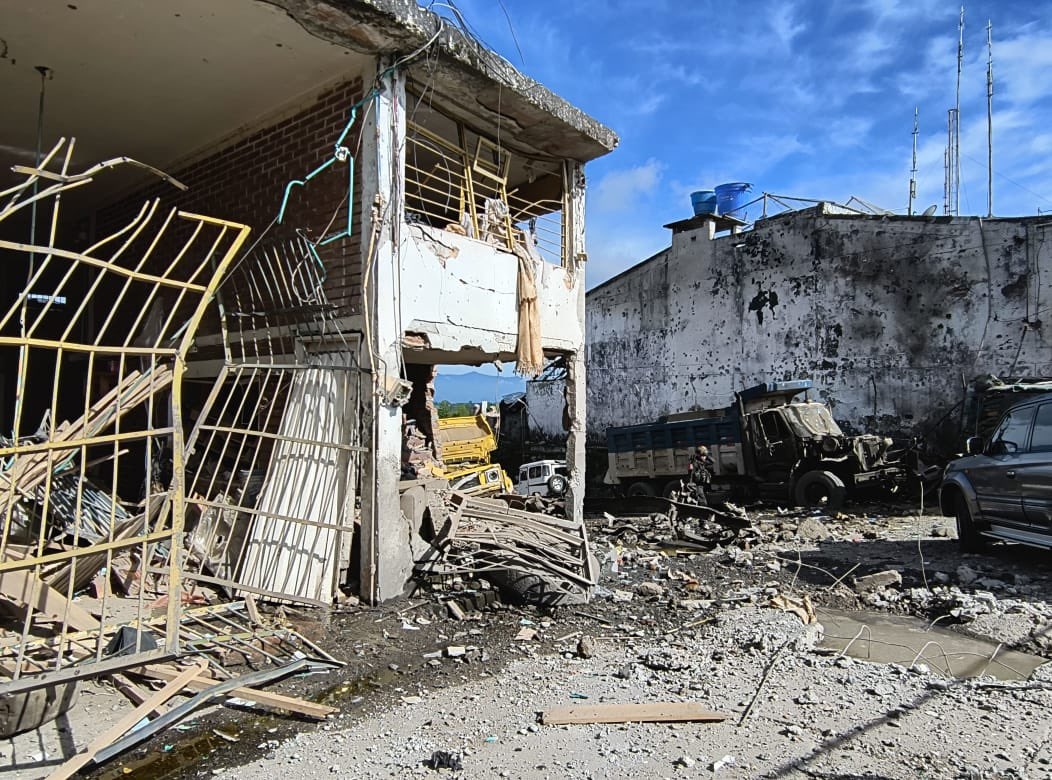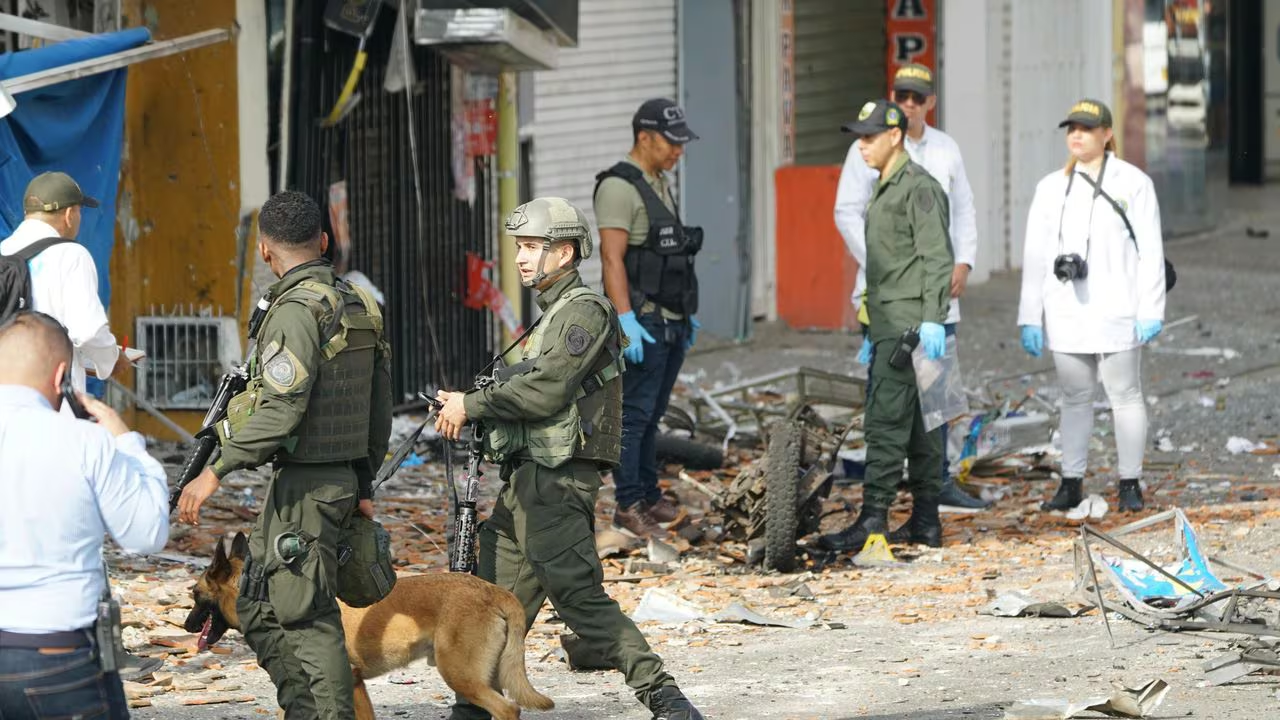A splinter group of the Revolutionary Armed Forces of Colombia known as the Estado Mayor Central (FARC-EMC) launched a large-scale attack on government forces in Morales, Cauca, on Monday, leading to the deaths of at least two police officers at the time of this publication.
The Attack
At around 06:00 local time, an explosive fastened to a motorcycle detonated in Jamundi, a town located on the border between Cauca and Valle del Cauca. The bomb was reportedly detonated next to a hotel where newly arrived law enforcement agents who were reinforcing forces in the region were staying, inflicting minor wounds on two officers, according to the mayor’s office.
These attacks reportedly began 24 hours after the issuance of a statement by the Jaime Martinez front of the FARC-EMC, wherein the front offered cash rewards for the targeting of authorities in Jamundi, according to authorities.
Around the same time, armed members of the FARC-EMC targeted the police station located in Morales, Cauca, firing weapons and detonating explosives across the town. Furthermore, authorities reported fighting in Potrerito, another town located just outside of Jamundi.

At 07:00, reports emerged of fighters targeting National Police facilities in Jambalo, Cauca. By 08:30, a video surfaced showing armed patrols of guerillas in Morales while the mayor of the town narrowly avoided the conflict and possible kidnapping by the FARC-EMC as he was en route to Bogota, the capital, at the time.
A esta hora en Morales Cauca atacan las Farc…. pic.twitter.com/7Ux0mHjasP
— Vicky Dávila (@VickyDavilaH) May 20, 2024
By 09:00, reports surfaced of a bank robbery, believed to have been orchestrated by the FARC-EMC, wherein 50 million pesos were reportedly stolen from the bank. The Colombian military stated that a military helicopter was targeted by members of the FARC-EMC and was shot multiple times by guerillas. This attack proved fruitless for the FARC-EMC, however, as no injuries or fatalities were reported. At this time, two police officers were declared dead amid the fighting with the FARC-EMC; they have been identified as Jaime Andres Calderon Reyes and Diego David Lopez Dominguez.

At 10:36, Vicky Davila, the director of Semana, posted an alleged conversation with a non-commissioned officer of the Colombian military wherein the soldier stated that his unit needed further support before stating that they were cut off from ground support.
“We need air support,” the text to Davila read. “Units arriving by land will not be allowed to arrive.”
In response to the ongoing security situation in Cauca, Colombian President Gustavo Petro requested the Minister of Defense, Ivan Velasquez Gomez, “immediately move with the entire military leadership to Cauca and establish a permanent security council.”
The Ministry of Defense announced the deployment of special forces to combat the armed group before stating that gunships had been approved to aid in the authorities’ efforts.
The Worsening Situation in Cauca
Cauca, a department located in southern Colombia and known for the heavy presence of the FARC-EMC, has been the battleground between government forces and the communist guerilla group for decades. This conflict has only heated up recently with the dissolution of a ceasefire between the government and the FARC-EMC in March, along with the resumption of military operations against the group.
On May 3rd, four Colombian soldiers lost their lives in Cauca during a firefight between authorities and the FARC-EMC after arriving in Argelia, a small town within the department. The soldiers successfully captured eight members of the Carlos Patino front of the FARC-EMC and were awaiting air transport, which was ultimately delayed, leading an estimated 200 members of the FARC to launch an attack on the 78 soldiers.
Tensions have been high between the FARC-EMC and the Colombian government, with the two previously failing to reach a temporary ceasefire due to an order to free hostages captured in April. Despite the two failing to reach an agreement, the hostages, three employees of Colombia’s Prosecutor’s Office and one soldier, were eventually released by the armed group with help from the Colombian Red Cross and the UN’s mission in Colombia.
Peace Talks Improbable as Violence Escalates
The attacks are the latest action taken by the FARC-EMC in their war against the government following the suspension of the ceasefire in March, a suspension the FARC condemned in its statement regarding the release of the hostages.
“The hasty decisions it [the Colombian government] made against the FARC-EP that led to the breakdown of the ceasefire, the constant accusations against our commanders, and its vain attempt to hold a dialogue table with a minority that is not part of the FARC-EP and does not represent even 5 percent of our guerrilla force is a bad path that it took, and that is not going to ensure the objectives that we had jointly proposed since we began that process of dialogue, which was nothing more than setting us on the path of a political and dialogue solution to overcome the structural elements that generated the conflict in Colombia.”
Attacks against government forces have further harmed relations between the FARC-EMC and the Colombian government, preventing any thought of a ceasefire from entering the minds of Colombians across the country. While the government has previously stated they would not reenter peace talks with the FARC-EMC, some believed talks would reengage due to the long history of the FARC or Colombian government breaking ceasefires before eventually returning to negotiations.
These attacks do not mean that the government will refuse to pursue the reopening of peace talks with the FARC. It remains possible that Colombian authorities will use the suspension of the ceasefire to weaken the FARC-EMC further, allowing the government to both have an upper hand if negotiations are resumed while also curbing the FARC-EMC’s growth that was seen under the previous ceasefires with the government.
This refusal to reenter peace talks with the FARC-EMC can also be seen as a departure from President Gustavo Petro’s controversial plan to bring “total peace” to Colombia, ending the 60-year-long civil struggle that led to the deaths of 450,000 people, while more remain missing. This plan is characterized by the president’s attempts to make peace with the various armed groups active in Colombia as opposed to military action in an effort to wipe them out.
This policy has achieved mixed results; while ceasefires with the FARC-EMC have been negotiated, talks have previously stalled with the National Liberation Army (ELN), a similar communist guerilla group.

